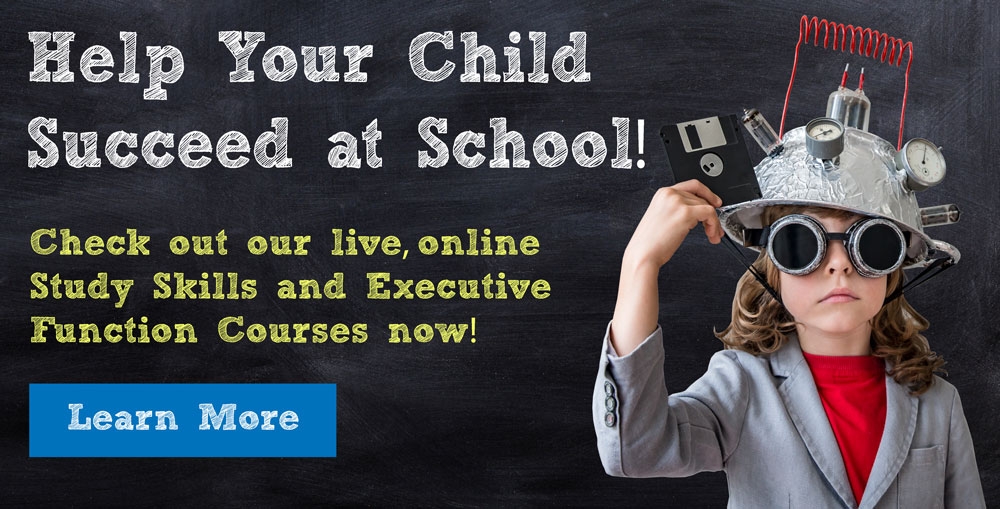Executive functions are a set of cognitive processes that allow individuals to plan, focus attention, remember instructions, and manage multiple tasks successfully. These mental skills are crucial for accomplishing goals. Although there isn’t a universally agreed-upon list of executive functioning skills, commonly recognized ones include: inhibitory control, working memory, cognitive flexibility, planning, organization, self-monitoring, emotional regulation, attentional control, and initiation. Together, these executive functions form the foundation for effective learning, decision-making, and social interaction, playing a significant role in both academic and everyday life success.
One of these crucial skills for kids to develop is flexibility, which refers to the ability to adapt to the demands of a situation. Flexibility involves using different emotional and cognitive responses as needed when transitioning between environments or events. Cognitive flexibility is relevant across a wide variety of scenarios, each demanding specific adaptive responses. For instance, it helps students effortlessly switch between different academic tasks and enables them to modify their behavior to fit diverse social environments. For younger children, it can be useful when trying new foods, handling losses in games, or moving between playtime and classwork. For teenagers, flexibility is also essential for managing time effectively, balancing social life with academic responsibilities, coping with peer pressure, and adjusting to new learning environments or teaching styles. These scenarios require the ability to think and adjust according to the situation’s needs. Increasing one’s skills in flexibility is often essential for children who struggle with transitions and become frustrated because of that.
Flexibility skills are valuable in various settings, such as the classroom, at home, in social situations, during extracurricular activities, and more. Below is a list of excellent books that explore the concept of flexibility and ways to improve it in these contexts. Each resource includes chapters that specifically address flexibility. Additionally, a summarized version of the Amazon description accompanies each book to assist you in finding the right resource for your understanding.

Adaptable Ninja: A Children’s Book About Cognitive Flexibility and Set Shifting Skills by Mary Nhin, 2022
“Adaptable Ninja,” part of the “Ninja Life Hacks” series, helps children ages 4-10 develop cognitive flexibility and set-shifting skills through a humorous and engaging story. This book, designed for young readers and enjoyable for adults, follows a character who struggles with changes in schedules and tasks. It works alongside “Flexible Thinking Ninja” to build essential executive functioning skills and provides a valuable resource for parents, teachers, and counselors.
More Than One Way To Be Okay: Developing Cognitive Flexibility With Children by Ronit Gross, 2015
This story follows Annie, a young girl who relies on strict rules and patterns to manage her emotions and feel safe. When life inevitably disrupts her carefully constructed order, Annie learns valuable lessons about flexibility and adaptability through the story of Dave the turtle and his rule-obsessed robot. The narrative explores the downsides of rigidity while celebrating the discovery that there’s more than one way to cope and feel secure.
How to Strengthen Executive Functioning: A Model for Improving Focus, Working Memory, and Flexibility by Mary Miele, 2024
This book offers a comprehensive resource for developing executive function skills in children, adolescents, and adults. It introduces the Evolved Education’s Integrated Executive Functioning Coaching Model, a practical framework with strategies and techniques to improve focus, working memory, and cognitive flexibility for better academic and personal outcomes. Parents, educators, therapists, and individuals seeking self-improvement will find this book valuable.
The Executive Functioning Workbook for Teens: Help for Unprepared, Late, and Scattered Teens by Sharon Hansen, 2013
This practical, evidence-based workbook, written directly for teens by a licensed school counselor, is an invaluable resource for anyone working with adolescents struggling with executive functioning disorder (EFD), including parents, teachers, counselors, and clinicians. It addresses common EFD challenges such as disorganization, lateness, forgetfulness, and impulsivity, which often lead to difficulties completing and submitting schoolwork. Using proven-effective cognitive behavioral therapy (CBT) activities, the workbook helps teens understand and cope with their EFD across ten key areas, including initiating action, flexible thinking, sustained attention, organization, planning, memory enhancement, emotional management, and self-awareness. The engaging format and practical tips empower teens to develop essential skills for success in school and everyday life, offering a path forward for those who may feel overwhelmed and ready to give up.
Executive Functioning Workbook for Kids: 40 Fun Activities to Build Memory, Flexible Thinking, and Self-Control Skills at Home, in School, and Beyond by Sharon Grand Ph.D., 2021
This workbook helps children aged 6 to 9 develop essential executive functioning skills—like attention, task completion, and memory—through 40 engaging, hands-on activities. Designed for independent use, the workbook empowers kids to build these skills and recognize their own progress, fostering a sense of accomplishment. The insightful exercises encourage children to work hard and appreciate their existing strengths and talents. A dedicated section for parents provides valuable insights into children’s learning processes and offers practical tips and activities to support their child’s success. This workbook equips children with the tools they need to tackle challenges at home, school, and beyond.
Executive Functioning For Teens by Leslie Gowans, 2024
This 30-day guide offers practical strategies, relatable anecdotes, and actionable tools to help teens and young adults unlock their potential by improving executive function skills. It addresses common challenges like time management, procrastination, organization, focus, impulsivity, stress management, and cognitive flexibility. The book provides effective techniques for handling digital distractions, setting goals, and developing routines for improved productivity and emotional regulation. Even those who feel overwhelmed or have struggled with other self-help methods will find valuable, readily applicable advice within its pages, empowering them to achieve both personal and professional success.
For those seeking additional support and resources on ADHD and executive functions, South County Child and Family Consultants offers a wealth of information and expertise. By visiting our website, you can access a curated selection of books and materials, connect with knowledgeable specialists, and find tailored advice to help you or your child navigate the complexities of ADHD. Whether you’re looking for strategies to improve daily routines, educational accommodations, executive functioning, or to simply better understand your child’s ADHD, South County Child and Family Consultants is an invaluable resource for empowering individuals and families.
Receive online class information and helpful tips from Dr. Randy Kulman's LearningWorks for Kids |




